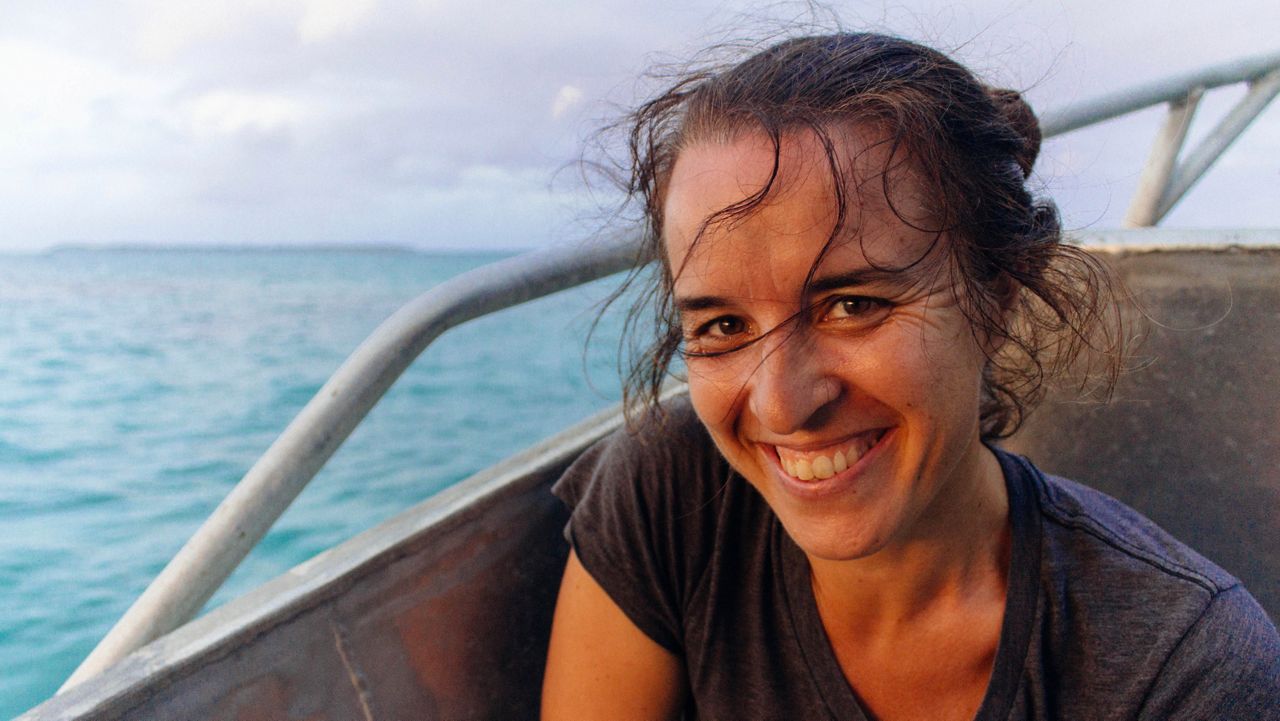HONOLULU — During the filming of her documentary on the tiny atoll island of Pukapuka, filmmaker Gemma Cubero del Barrio felt a searing pain in her left leg.
It was a numbing sensation. Cubero del Barrio collapsed and for months could barely walk. For a get-up-and-go type of woman, slowing down was not in her vocabulary.
But here she was on this tiny island, being forced to rest and slow down.
The injury, she said, "forced me to look at myself." But through that injury and eventual recovery, she felt the magic of Pukapuka.
"This place transformed me," Cubero del Barrio told Spectrum News. "By transforming me, I was no longer this outsider documenting this place. This place was teaching me what I needed to learn about [Pukapuka] from this experience."
Cubero del Barrio didn't want to give too much away during an interview with Spectrum News, but it was apparent to her that this tiny island of 450 or so people had a profound impact on her life, as well as the two subjects the film follows.
Cubero del Barrio's documentary, "The Island in Me," made its debut at the Hawaii International Film Festival this month.
The 100-minute documentary chronicles the journey of two daughters of Pukapuka, who left the atoll at a young age and had longed to return home.
Pukapuka is a tiny remote atoll part of the Cook Islands and is situated northeast of Samoa. There are no tourism flights to Pukapuka. Outside visitors need to be invited by the island's council. Despite being part of the Polynesian culture, the Pukapukans have a distinct language and unique way of life.
"This is a place that functions outside of the capitalist system," said Cubero del Barrio, adding their way of life has never been captured in film before. "They work hard, they play hard, and they pray."
The film follows Amelia Hokulea Borofsky, the daughter of anthropologist Robert Borofsky, who lived in Pukapuka in the mid-1970s before moving away, and Florence Ngatokura "Johnny" Frisbie, an author who grew up on the atoll.
Cubero del Barrio, a Spanish director who won awards with her other documentaries such as Ella es el Matador (She Is The Matador), was inspired to make the film after meeting Amelia Hokulea Borofsky in Hawaii about two decades ago. The two were roommates.
"She would tell me these stories about growing up on this tiny atoll in the Pacific, and at that time many years ago, she wasn't sure if the memories were dreams or were real," said Cubero del Barrio. "She only lived there in the first five years of her life. She was a child."
Cubero del Barrio had been working on other films, but as she got to know Amelia more and more, "I saw the deep imprint this island had on her."
"She had this huge calling to go back," said Cubero del Barrio. "She wanted to know if this place was real or if she imagined it."
The two found Frisbie's out-of-print book, "Miss Ulysses of Puka-Puka" on a bookshelf at Amelia's home. Amelia read the book and told Cubero del Barrio, "This place is real. I need to go back to my childhood island."
"My life was deeply changed by her decision to go back," said Cubero del Barrio.
The two would meet Frisbie, who had also longed to go back to the atoll, and that's when the journey to make the film began.
"I knew that I had to embark on this journey to tell their story, and in the process of the ten years I worked on the film, I also felt like the island deeply changed me," she said.
Cubero del Barrio raised money through a Kickstarter campaign in 2015 and raised $56,000. In making the original documentary, she also received funding from the United Nations to produce a second mini-documentary about how climate change affects the indigenous natives in Pukapuka/ Nassau on the Cook Islands.
The 14-minute "Our Atoll Speaks – Ko Talatala Mai Tō Mātou Wenua" debuted at the Hawaii International Film Festival in 2019.
Cubero del Barrio said although the film chronicles the homecoming of the two women, Borofsky and Frisbie, the island also impacted her spiritually, mentally, and physically.
Cubero del Barrio's weaved in her own story about her experience filming the two women and the atoll residents.
"The result is a much more personal piece," said Cubero del Barrio. "It shows the imprint that this place had on these three women. I am no longer the same. It's been a spiritual journey for me. I'm really honored to share the film with the world."
"The Island in Me" made its world premiere on Nov. 9 in Honolulu. The film will play at 2:30 p.m., Nov. 21 at the Waimea Theater in Waimea, Kauai. It will also be available for streaming online up to Nov. 28 on the Hawaii International Film Festival website.



